★★½
“The world’s laziest assassin.”
 By that, I am referring to the unnamed heroine of this film, because she doesn’t have to leave the house. She works as a hitwoman for Yakuza boss Yasuhiro Kokubu (Katô), and he delivers the targets to the front-door of her rural home, on the pretext of her being their entertainment. She then gives them the Black Widow treatment, having sex with them, before a couple of post-coital shots. She barely has to get out of bed, literally. In some way this makes sense, since she’s blind – I guess it’s nice to see the disabled being given equal opportunities in the assassin field. But she’s not exactly happy with her lot; her cleaner and handler Masahiko Yoshizawa (Murai) is concerned about her spiralling into alcoholism.
By that, I am referring to the unnamed heroine of this film, because she doesn’t have to leave the house. She works as a hitwoman for Yakuza boss Yasuhiro Kokubu (Katô), and he delivers the targets to the front-door of her rural home, on the pretext of her being their entertainment. She then gives them the Black Widow treatment, having sex with them, before a couple of post-coital shots. She barely has to get out of bed, literally. In some way this makes sense, since she’s blind – I guess it’s nice to see the disabled being given equal opportunities in the assassin field. But she’s not exactly happy with her lot; her cleaner and handler Masahiko Yoshizawa (Murai) is concerned about her spiralling into alcoholism.
Of more immediate concern though, is Kokubu’s paranoia, which has convinced him that his trio of killers need to be disposed of, before they become a liability. His sent one assassin to visit her, only for her to prevail. So he follows up by dispatching the other one, Kenji Sakagami (Kusakari), to finish the job. Except he had followed the first killer and knows all too well what’s going on. Unsurprisingly, he suspects that once he kills her, his name will be next on his boss’s list, and so makes other plans, which involve him escaping with his target. However, Yoshizawa will need to be handled, and Sakagami also needs to convince her of his genuinely good intentions.
As you can imagine, given her static nature, it’s not exactly action-packed, though does ramp up nicely down the stretch. Until then though, it’s of an angsty drama, with more than the normal amount of sex. The focus is perhaps more on Sakagami than anyone else, with the heroine being quite passive. While this is perhaps inevitable, given her particular set of circumstances, it doesn’t make for thrilling cinema. The director seems fond of depicting things in real time, which is a bit of a mixed blessing. I could have done without a lengthy depiction of Sakagami’s first journey out to her home, but when the love-making between them gets a similar treatment, it’s an interesting variation on the way such things are usually depicted.
This is the first of the series which would give us Beautiful Beast a couple of years later, but is a little lower key and, in general, less interesting. The elements are all reasonable enough in themselves, it’s just that they are combined in a way which occasionally borders on the soporific. Action is probably not a secondary consideration here, likely ranking below both the drama and the eroticism, and very much of the “blink and you’ll miss it” kind. The finish is strong, though this too seems over-extended beyond what it might merit. As a portrait of a damaged assassin, it just doesn’t convince, perhaps because we do not spend enough time with her, and even her blindness doesn’t matter much.
Dir: Kazuo ‘Gaira’ Komizu
Star: Masumi Miyazaki, Masao Kosakari, Kunio Murai, Takeshi Katô
a.k.a. XX: Beautiful Weapon





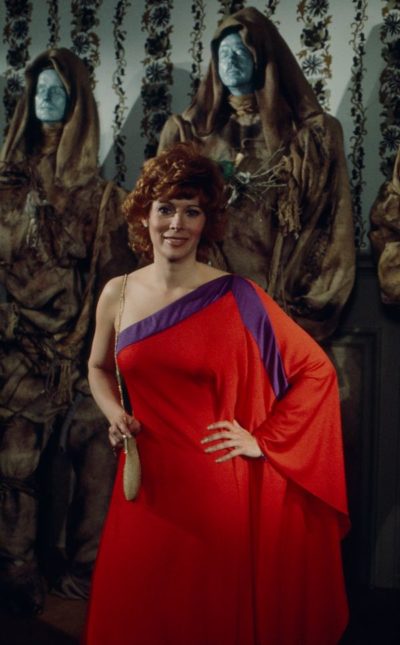 No, not the eighties version of Brenda Starr: that is well known, and justifiably much derided, to the point it didn’t even reach the necessary level for inclusion here. But neither was it the first version of the comic-strip to reach the screen. Well, at least the small screen. There had previously been a 1945 series, Brenda Starr, Reporter, though some reports describe this as nearly action-free. But the late seventies saw two television efforts: as well as the one under discussion here, three years later in 1979, there was an unsold television pilot movie (now apparently lost) in which Sherry Jackson played the intrepid girl journalist. In contrast, this appears to have been intended as a stand-alone from the get-go. While I’m sure ABC wouldn’t have minded had this been successful enough to become a franchise, it suffers from much the same problem as all the other adaptations, with a heroine that’s too passive to pass muster
No, not the eighties version of Brenda Starr: that is well known, and justifiably much derided, to the point it didn’t even reach the necessary level for inclusion here. But neither was it the first version of the comic-strip to reach the screen. Well, at least the small screen. There had previously been a 1945 series, Brenda Starr, Reporter, though some reports describe this as nearly action-free. But the late seventies saw two television efforts: as well as the one under discussion here, three years later in 1979, there was an unsold television pilot movie (now apparently lost) in which Sherry Jackson played the intrepid girl journalist. In contrast, this appears to have been intended as a stand-alone from the get-go. While I’m sure ABC wouldn’t have minded had this been successful enough to become a franchise, it suffers from much the same problem as all the other adaptations, with a heroine that’s too passive to pass muster I should be clear, this is not to be confused with
I should be clear, this is not to be confused with 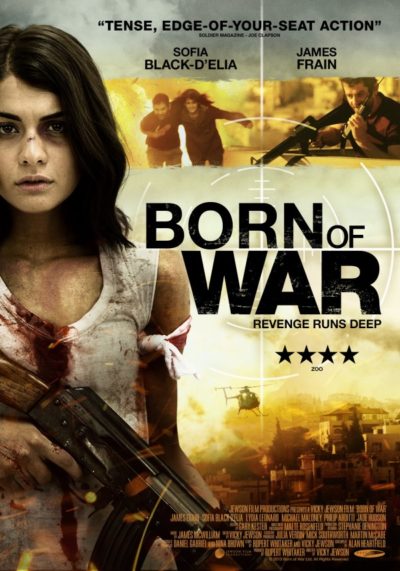 While technically solid, and occasionally looking quite good, this may be the laziest scripting I have seen in a movie for a long time. I feel I may have lost actual IQ points through the process of watching it, such is the degree of stupidity which this provides. The heroine is Mina (Black-D’Elia), a college student whose life is upended when she and her little sister narrowly escape a home invasion by Arab terrorists, in which both her parents are killed. She’s rescued by intelligence agent Olivia (Leonard), who tells her she’s the only heir of an Afghani warlord, Khalid (Arditti). Her mother betrayed him, and had to change her identity: he finally caught up with the family, and wants his daughter back.
While technically solid, and occasionally looking quite good, this may be the laziest scripting I have seen in a movie for a long time. I feel I may have lost actual IQ points through the process of watching it, such is the degree of stupidity which this provides. The heroine is Mina (Black-D’Elia), a college student whose life is upended when she and her little sister narrowly escape a home invasion by Arab terrorists, in which both her parents are killed. She’s rescued by intelligence agent Olivia (Leonard), who tells her she’s the only heir of an Afghani warlord, Khalid (Arditti). Her mother betrayed him, and had to change her identity: he finally caught up with the family, and wants his daughter back.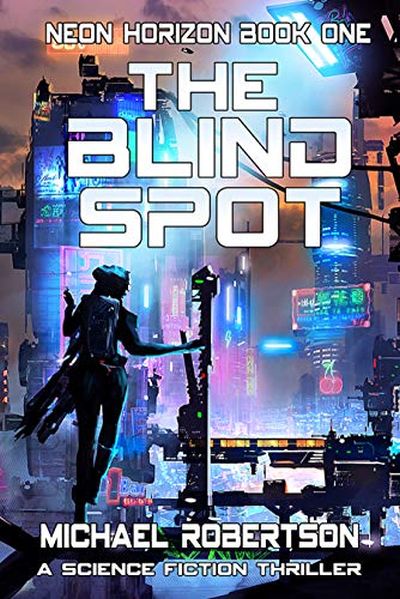 On the surface, Scala City is an idyllic, hi-tech world of prosperity, peace and morality, albeit at the cost of omnipresent surveillance of its residents. But there’s a dirty little secret. The Blind Spot is an area where surveillance is barred, and where the citizens of Scala City go to blow off their sordid steam. Its residents have cybernetically enhanced bodies, something rejected by Scala City, and a zero-tolerance policy for any kind of monitoring. It’s run by Wrench, who has kept his daughter Marcie Hugo under strict control since the death of her mother. However, like all teenagers, the 16-year-old Marcie is seeking to spread her wings, and has been making covert excursions into Scala City, with the aim of moving there some day soon.
On the surface, Scala City is an idyllic, hi-tech world of prosperity, peace and morality, albeit at the cost of omnipresent surveillance of its residents. But there’s a dirty little secret. The Blind Spot is an area where surveillance is barred, and where the citizens of Scala City go to blow off their sordid steam. Its residents have cybernetically enhanced bodies, something rejected by Scala City, and a zero-tolerance policy for any kind of monitoring. It’s run by Wrench, who has kept his daughter Marcie Hugo under strict control since the death of her mother. However, like all teenagers, the 16-year-old Marcie is seeking to spread her wings, and has been making covert excursions into Scala City, with the aim of moving there some day soon.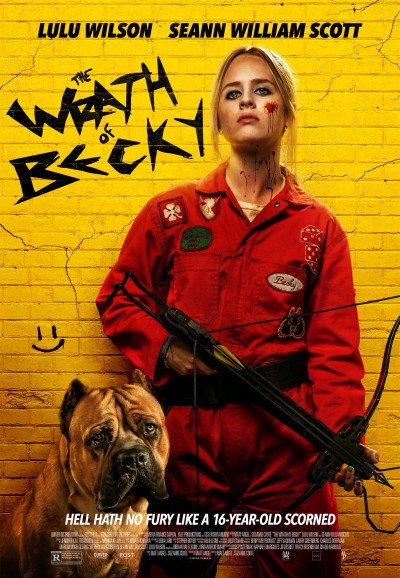 Don’t mess with someone else’s dog. This is a good rule of thumb in most cases, but especially so when the owner is an unhinged teenage psychopath, with the both the talent and desire to inflict carnage in retribution. The
Don’t mess with someone else’s dog. This is a good rule of thumb in most cases, but especially so when the owner is an unhinged teenage psychopath, with the both the talent and desire to inflict carnage in retribution. The 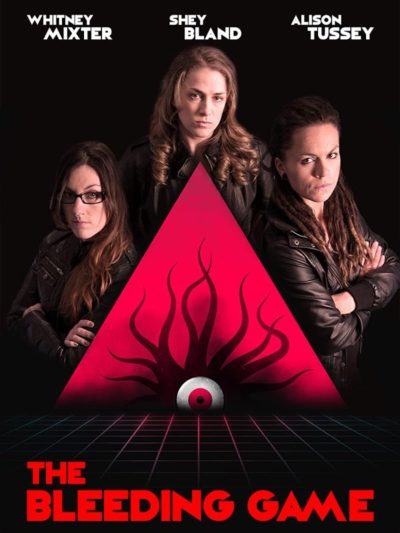 It is possible to do Lovecraft on a low-budget and make it work. Earlier this year, I was introduced to the delightful films of Lars Henriks, who did
It is possible to do Lovecraft on a low-budget and make it work. Earlier this year, I was introduced to the delightful films of Lars Henriks, who did 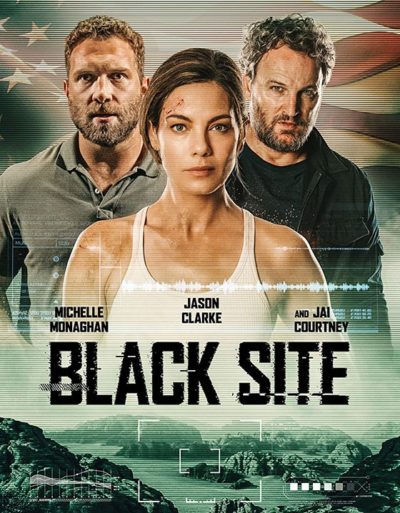 This has a fair amount in common with the disaster which was
This has a fair amount in common with the disaster which was 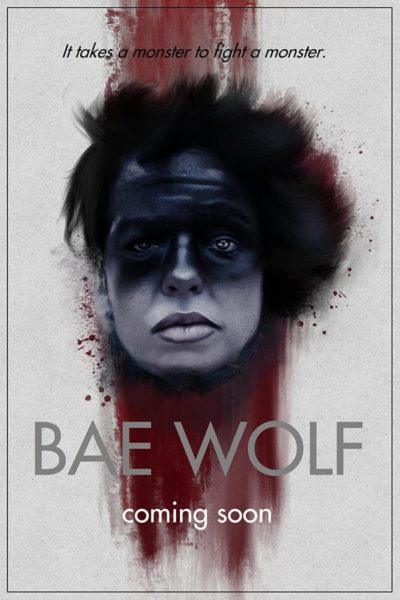 There is certainly room for reworking of the tale of Beowulf and Grendel, and making the heroines of this version female is what got me interested in it. However, the warning signs were out very quickly. Opening titles which said “Denmark… 500 AD… (-ish)” are a good sign of what to expect, for it’s clear that the makers were not happy to leave their changes at that. Indeed, they consciously embrace anachronism, especially in the dialogue, which is thoroughly modern, and could not be further from the epic poetry of the original if they tried. And I suspect they
There is certainly room for reworking of the tale of Beowulf and Grendel, and making the heroines of this version female is what got me interested in it. However, the warning signs were out very quickly. Opening titles which said “Denmark… 500 AD… (-ish)” are a good sign of what to expect, for it’s clear that the makers were not happy to leave their changes at that. Indeed, they consciously embrace anachronism, especially in the dialogue, which is thoroughly modern, and could not be further from the epic poetry of the original if they tried. And I suspect they 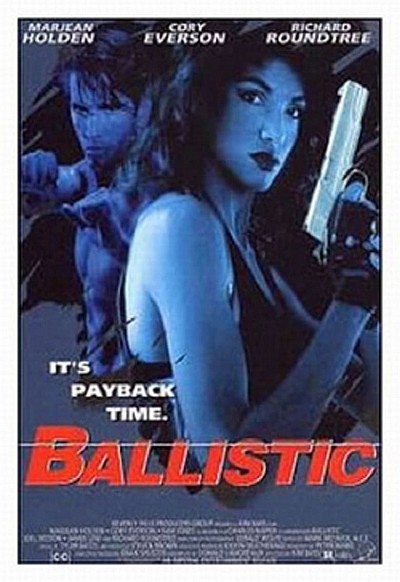 You know you’re in for a slice of stinky, nineties action cheese from the opening sequence. Undercover cop Jesse (Holden) has just taken down a sleazy yuppie drug-dealer, and a homeless woman tells her, “You know what you are, sweetie? You’re ballistic!” We probably need to explain why the film is titled that way, because there’s really not an enormous amount of great action here to justify it. Jesse is your typical, no-nonsense cop, who has just transferred from homicide to the Urban Crime Taskforce, where she is meeting resistance from her new colleagues. She is also trying to help her father (Roundtree), a former cop now doing 20 years after being framed with kilos of coke.
You know you’re in for a slice of stinky, nineties action cheese from the opening sequence. Undercover cop Jesse (Holden) has just taken down a sleazy yuppie drug-dealer, and a homeless woman tells her, “You know what you are, sweetie? You’re ballistic!” We probably need to explain why the film is titled that way, because there’s really not an enormous amount of great action here to justify it. Jesse is your typical, no-nonsense cop, who has just transferred from homicide to the Urban Crime Taskforce, where she is meeting resistance from her new colleagues. She is also trying to help her father (Roundtree), a former cop now doing 20 years after being framed with kilos of coke.